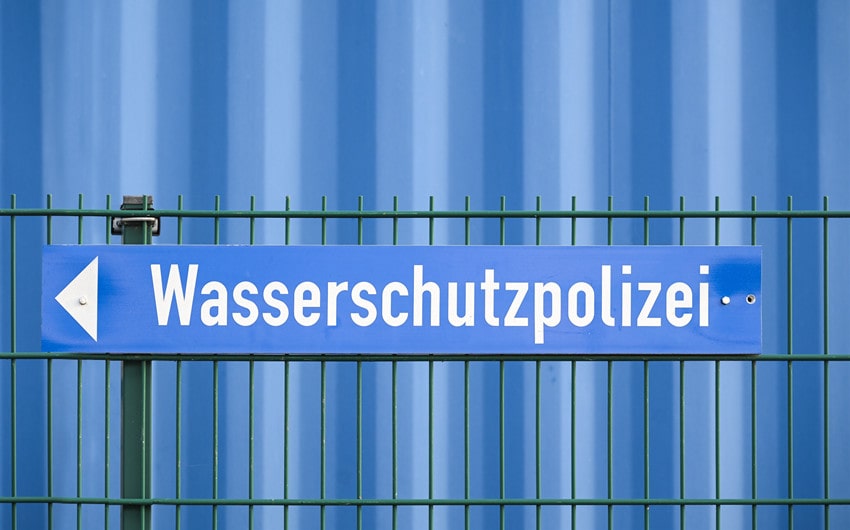Why Are German Words So Long and What Makes Them Work
The first time I saw the word Rechtsschutzversicherungsgesellschaften, I thought it was a typo. Then I saw Donaudampfschifffahrtsgesellschaftskapitän and realized: nope, this is just how German works. The language is famous—or infamous—for its extremely long, tongue-twisting words. But are they really that unusual once you understand them? I got curious about the mechanics behind these massive words. Why does German seem to go out of its way to combine so many letters into one word? And how does anyone speak it without needing a break to breathe?
It’s All About Compound Words—And Germans Love Them
At the core of German word-building is a structure known as compound formation. It’s exactly what it sounds like: taking two or more existing words and merging them into a single, longer one. And it’s not just a stylistic choice—it’s a deeply embedded feature of the language. Germans don’t need extra prepositions or descriptors to explain an idea. They just stack the relevant nouns together and create a new word that covers the whole concept.
For example, “glove” in German is Handschuh—literally, “hand shoe.” Logical, right? A hospital is a Krankenhaus (“sick house”), and a dentist is a Zahnarzt (“tooth doctor”). Each part of the word is easy to understand on its own, and when combined, it gives a clear picture of the meaning. It’s efficient, descriptive, and surprisingly intuitive once you get the hang of it.
What’s interesting is that these compounds are not considered informal or slang—they’re the standard. If a new idea or concept arises, German doesn’t invent a brand-new word out of thin air. It builds one from what it already has, often resulting in words that can be daunting in length but precise in meaning.
German Grammar Encourages Word Fusion Without Limits
Unlike English, where compound words are often hyphenated or spaced out, German grammar encourages fusion. And there’s no official limit on how many words can be joined together. If the combination is logical and grammatically sound, it’s valid—even if it takes up half the line on a page.
This gives us marvels like Lebensversicherungsgesellschaft (life insurance company) or Rindfleischetikettierungsüberwachungsaufgabenübertragungsgesetz (a now-retired law about beef labeling oversight). While these words may not show up in everyday conversation, they are technically legitimate—and understandable once you break them down.
Each word within the compound maintains its role. German speakers know how to identify the core noun (usually the final one) and interpret the rest as descriptive modifiers. It’s a mental skill developed over years of language exposure, and it allows fluent readers to process long words almost effortlessly.
For learners, it’s like solving puzzles. Once you know that Zahn is “tooth,” Arzt is “doctor,” and Praxis is “practice,” you can make sense of Zahnarztpraxis—dentist’s office. It’s a system that rewards analysis and logical thinking, even if it looks intimidating at first glance.
Precision Is a Cultural and Linguistic Priority
If you’ve ever interacted with German forms, signs, or technical manuals, you’ve probably noticed how much detail they pack in. German is a language that values clarity and precision—both in communication and in thought. Long compound words are a direct reflection of that priority. Instead of using vague phrases, Germans prefer to articulate exactly what they mean in a single, specific word.
Take Schadenfreude, for instance—a word with no direct English equivalent. It means the pleasure derived from someone else’s misfortune. Or Kummerspeck—literally “grief bacon”—which refers to emotional eating during times of distress. These are more than just oddities—they’re proof that German can express very specific emotional and psychological states that might require entire sentences in other languages.
This love of precision is also part of the reason why German has such a rich vocabulary in law, philosophy, and science. Words can be built to cover incredibly specific legal relationships or chemical compounds. Sure, that might make for long words—but those words often tell you exactly what you need to know, no confusion or ambiguity involved.
Some Words Are Practical, Others Are Playful or Absurd
Not every long word in German is used seriously. Some are invented for humor, exaggeration, or linguistic gymnastics. There’s a long-standing tradition of playing with compound words, stacking them to absurd lengths just because the language allows it. One famous example is:
Donaudampfschifffahrtselektrizitätenhauptbetriebswerkbauunterbeamtengesellschaft—a tongue-in-cheek creation referring to a “Subordinate officials’ association of the Danube steamship electrical services main operating facility.”
Will you ever need to say this in real life? Definitely not. But it illustrates how the language works—and how it allows wordplay that would be impossible in many other languages. These monster words serve as humorous reminders of just how flexible German is. They’re fun, technical challenges for native speakers, and perfect trivia fodder for curious linguists.
Native Speakers Don’t See Long Words the Way Learners Do
If you’re new to German, a 30-letter word might seem like an impossible mountain to climb. But native speakers don’t actually experience them that way. Instead, they see the components. Their brains automatically break the word down into its building blocks—recognizing each familiar chunk and understanding the structure.
Think of how English speakers read “airport security checkpoint” without blinking. That’s technically a three-part compound noun. In German, it might become something like Flughafensicherheitskontrollpunkt. To an experienced reader, that’s no more complicated than any other word. They’re parsing it by instinct, not by memorization.
This intuitive unpacking is what makes long words feel normal to native German speakers. It’s not that they’re reciting entire paragraphs in one breath—it’s that they’re processing short ideas stacked in a long format. And when you grow up doing that, it doesn’t feel long. It just feels right.
Long Words Reflect a Deeper Logic in the Language
Ultimately, the length of German words isn’t about being difficult—it’s about being logical. Each compound is a little story, built step-by-step. A word like Kindergarten (children + garden) paints a clear picture of what the space is meant for. Geschirrspülmaschine (dishes + rinse + machine) tells you exactly what the machine does. There’s something deeply satisfying about that kind of linguistic efficiency.
It may not always be elegant, and it’s definitely not always brief, but German words are built with care and clarity. And once you get used to them, they start to feel less like threats and more like tools—long, sometimes clunky, but incredibly precise tools.
They’re Not Just Long—They’re Intentional, Efficient, and Even Beautiful
So why are German words so long? Because they’re meant to be. They reflect a worldview that values completeness, specificity, and structure. They’re the verbal version of German engineering—compact in the sense that nothing is wasted, even if the whole thing looks oversized.
Once I stopped being afraid of long German words and started breaking them apart, I found a new appreciation for how the language thinks. It doesn’t just name things—it explains them. And sometimes, it does so in a single word the length of an English sentence. Now that’s efficiency.






